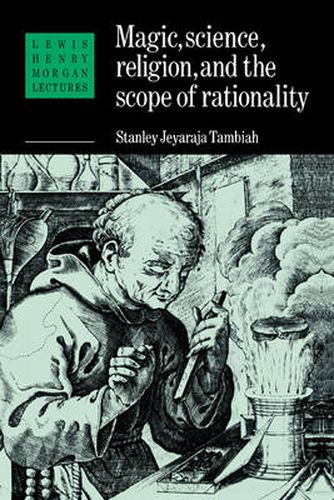Readings Newsletter
Become a Readings Member to make your shopping experience even easier.
Sign in or sign up for free!
You’re not far away from qualifying for FREE standard shipping within Australia
You’ve qualified for FREE standard shipping within Australia
The cart is loading…






Professor Tambiah, one of today’s leading anthropologists, is known particularly for his penetrating and scholarly studies of Buddhism. In this accessible and illuminating book he deals with the classical opposition between magic, science and religion. He reviews the great debates in classical Judaism, early Greek science, Renaissance philosophy, the Protestant Reformation, and the scientific revolution, and then reconsiders the three major interpretive approaches to magic in anthropology: the intellectualist and evolutionary theories of Tylor and Frazer, Malinowski’s functionalism, and Levy Bruhl’s philosophical anthropology, which posited a distinction between mystical and logical mentalities. There follows a wide-ranging and suggestive discussion of rationality and relativism. The book concludes with a discussion of new thinking in the history and philosophy of science, which suggests fresh perspectives on the classical opposition between science and magic.
$9.00 standard shipping within Australia
FREE standard shipping within Australia for orders over $100.00
Express & International shipping calculated at checkout
Professor Tambiah, one of today’s leading anthropologists, is known particularly for his penetrating and scholarly studies of Buddhism. In this accessible and illuminating book he deals with the classical opposition between magic, science and religion. He reviews the great debates in classical Judaism, early Greek science, Renaissance philosophy, the Protestant Reformation, and the scientific revolution, and then reconsiders the three major interpretive approaches to magic in anthropology: the intellectualist and evolutionary theories of Tylor and Frazer, Malinowski’s functionalism, and Levy Bruhl’s philosophical anthropology, which posited a distinction between mystical and logical mentalities. There follows a wide-ranging and suggestive discussion of rationality and relativism. The book concludes with a discussion of new thinking in the history and philosophy of science, which suggests fresh perspectives on the classical opposition between science and magic.